Description
After the war Karl Dittert (born 1915 in Mährisch Trübau/ Austria-Hungary) was accepted at what was then the Staatliche Fachhochschule für das Edelmetallgewerbe in Schwäbisch Gmünd, the city of silversmiths. In Hans Warnecke’s class – a man with Bauhaus convictions who was responsible for gold and silver work – he learned the fundamentals of industrial design. When Warnecke was appointed to the Kunstakademie in Stuttgart, Dittert took over his teaching position in 1956, in 1961 he was appointed professor. Finally, when Wilhelm Braun Feldweg moved to the Hochschule für Bildende Künste in berlin, Dittert took over his industrial product design class. He built this subject into a regular item in curriculum. In 1970 Dittert was appointed director of the School, now called „Fachhochschule für Gestaltung“.
Dittert (geb.1915 in Mährisch Trübau/Österreich-Ungarn) was with Arno Votteler, Peter Raacke and Günther Kupetz one of the founder-members of the „Verband Deutscher Industrie-Designer“ who were teachers at institutes of higher education as the principal element of their career, and so had to put their activity as designers second. Given this, Dittert’s success as an industrial designer is to be valued all the more highly: he is considered to be one of the most eminent tableware and office furniture designers.
Dittert has always been a strict systematist in his work, but this thinking is not one-sidely shaped and reshaped by obsessive logic. His attitude to work he formulates like this: “I design necessary products, not useless ones. They should be capable of being produced economically and give pleasure in use; the form Original, but not a servant of fashion. They stay in use for longer then.”
In 1960 the silvermanufacturer Gebrüder Kühn, Schwäbisch Gmünd startet to produce a mocha-service in which Dittert combined rational production systematically with possibilities of greater product sophistication. In each case the bodies of the vessels of the different parts of the service are identical; the desired increase in sophistication is achieved simply by fitting different, tops and handles to the pots. This obviated the use of expensive deep-drawing tools; the „unit construction system“ managed with a relatively small number of elements, but they could be used to make a large number of different utensils. The austere aesthetics of these products, which could also have come from the Hochschule für Gestaltung in Ulm, and following the Bauhaus – aesthetics of the 1920th , was not a formal intention, but a result of production logic.
In: Christian Marquart: Industriekultur-Industriedesign. Ein Stück deutscher Wirtschafts- und Designgeschichte: Die Gründer des Verbandes Deutscher Industrie-Designer, ed. vom Design Center Stuttgart, Landesgewerbeamt Baden-Württemberg, Berlin 1992, p.92f..
Priceref.: Van-Ham 327th Auction,16.11.2013, “Europäisches Kunstgewerbe”, Lot 1577, hammerprice for three pieces 1.750 EURO add. comission.





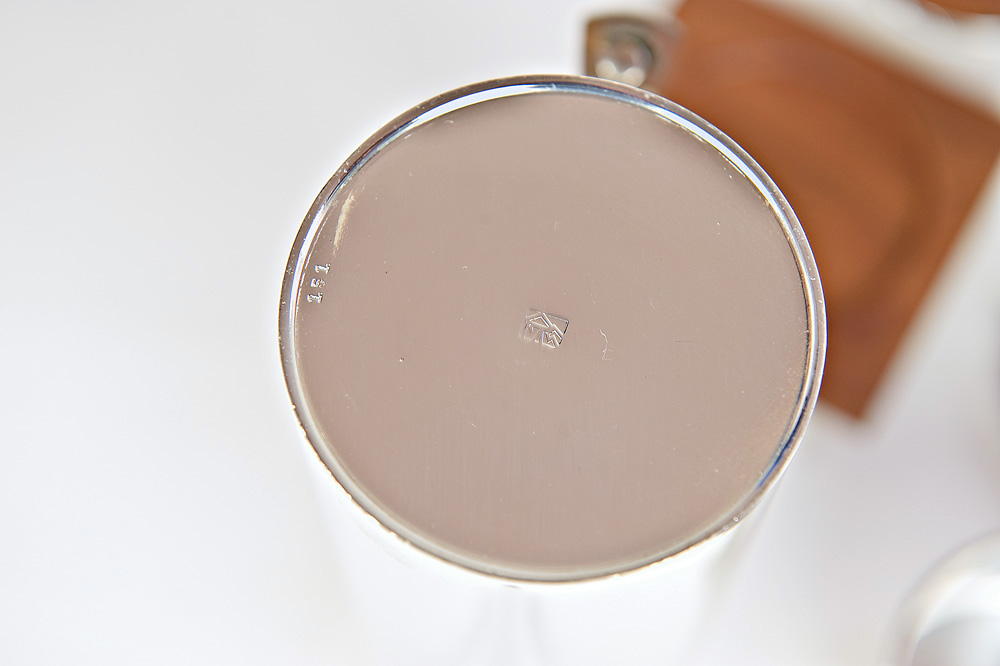
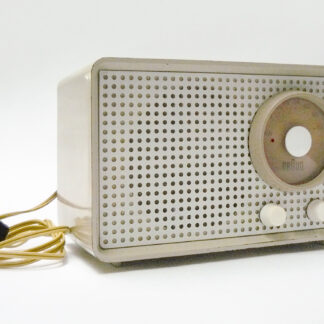
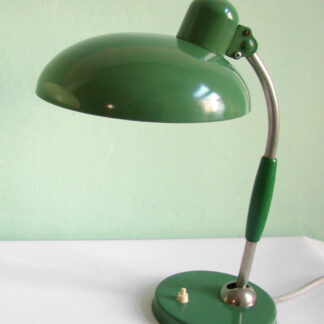
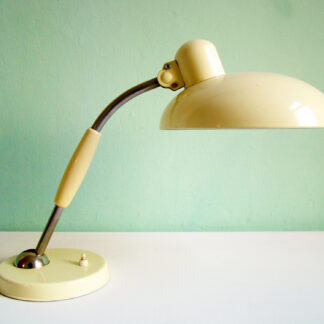
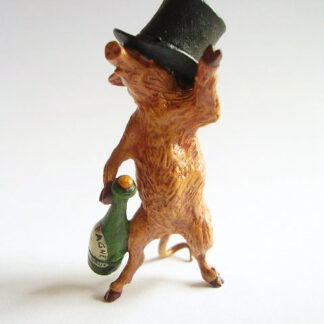
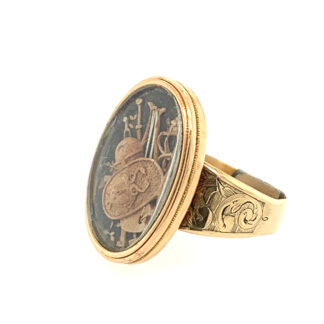
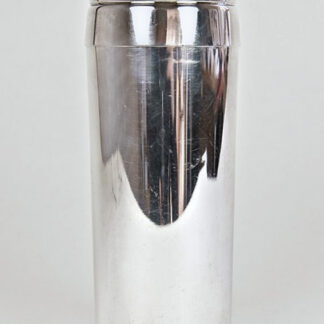
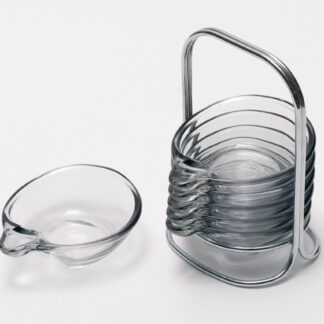
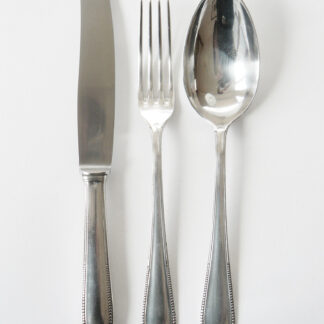
Reviews
There are no reviews yet.